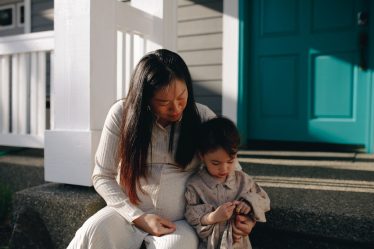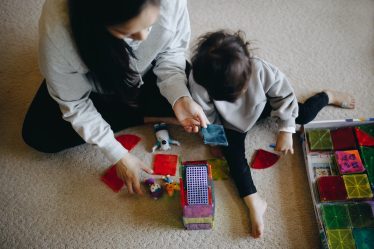
First published: 21 September 2022 @ 6:00 pm
“Be very careful,” we often say to our children.
As a parent, the risk of injury and death to children is a constant concern. Every parent has an instinctual desire to protect their children.
That’s why we often say to children, “Be very careful.”
However, children can misinterpret this as a warning or a command. They can also interpret it as the parents’ wish to reclaim their sense of control.
However, telling a child to be careful too often conveys the idea that danger is imminent, and the world is too dangerous for children.
In this article, we will talk about the reasons we shouldn’t tell children to be careful, and what alternatives to this warning we can use instead.
Stop Telling Children to ‘Be Very Careful’: Why?
1. It Instills Fear
A helicopter parent will tell their children to be careful all the time. However, in this world, danger is a constant reality. You can never be 100% safe.
This is especially true for children who are more vulnerable than adults. They are still developing and growing, so they can’t protect themselves as well as an adult.
Telling children to be careful can therefore have the effect of causing fear and anxiety in them.
This fear can make children worry about their safety, which will cause them to have less fun in the world.
2. It Distracts From Your Child’s Development
When you tell your child to “be very careful,” you’re telling them they need to take care of themselves at all times.
It might make them feel guilty about enjoying life or taking risks that would help them grow as a person.
Instead of focusing on their development on learning how to live in the world and make good choices, children might feel compelled to follow your rules and avoid any possible risk!

Photo by Jep Gambardella on Pexels.
3. It Is Too Easy For Children To Ignore
This is because the warning doesn’t tell them what they need to do differently: it just tells them to be very careful.
It doesn’t tell them why they need to be careful, so it’s easy for children to ignore it.
This means that a child can learn to become careless. The warning is not specific enough, and the child doesn’t understand the reasons they should be careful.
Instead of being warned, they might instead feel pressured to take more and more risks. Eventually, they will become too careless to be safe anymore.
4. It Doesn’t Teach Children How To Be Safe In The World
It’s also important for children to know how they can protect themselves in dangerous situations, especially when they’re alone in the world.
They need to know what safety measures they should take if something happens that could harm them, or if there is someone who might want to harm them (like a stranger).
For this reason, it’s important for parents to explain these things to their children, so that they don’t needlessly worry about their safety.
Instead of focusing on being safe in the world, children might instead feel helpless and anxious when something bad happens.
5. It Can Create Guilt and Anxiety
If you tell your child to be very careful, then you might also expect them to be perfect and do everything perfectly, with no mistakes.
If they make a mistake or get hurt, they might feel guilty and anxious because they think they are not being careful enough.
This can lead to anxiety and low self-esteem, which can make them less likely to try things that could help them grow as a person.
This is especially true for children who grow with strict or overly protective families.
They might feel like they’re being punished by their parents when they make mistakes, which makes them more anxious than happy.
6. It Can Lead To Fear Of Being Hurt By Strangers (Paranoia)
Another thing that children can learn from this warning is that strangers can hurt them and kill them.
If a stranger tries to hurt your child, then your child will feel like he or she doesn’t know what to do about it at all!
Children need to know how dangerous strangers are in order to protect themselves from harm in the world (for example, by knowing how to run away).
But if a stranger tries to hurt your child, then your child will not know what to do in this situation at all.
This can make children afraid of strangers, which can have a negative impact on their development as a person.
They might become anxious or depressed, which could prevent them from trying new things that could help them grow as a person.

Photo by PNW Production on Pexels.
A Too Cautious Child is Not Good
It’s important for parents to know when to use warnings and when to use alternatives, in order to help their children grow as people.
By telling children to be very careful, you’re probably not teaching them anything about how they can protect themselves in dangerous situations.
Instead, you’re only teaching them that the world is too dangerous for them to be safe.
In order for children to grow as happy, confident and capable adults, it’s important for them to know how they can protect themselves from harm in the world.
Instead of saying “be very careful,” it’s better for parents to tell their children what dangers they need to be aware of and what safety measures they should take.
This will help their children become safe and independent adults who can make good choices in life.
Our blog, Mature Parent, contains many articles about parenting and child development, as well as other topics.
Please visit our blog for more information about these topics and to join our free email newsletter for parents!



